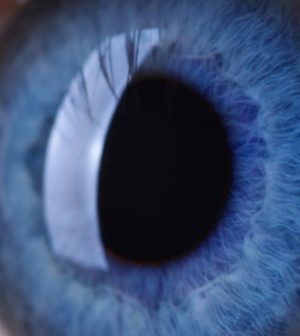- Could Your Grocery Store Meat Be Causing Recurring UTIs?
- Are You Making This Expensive Thermostat Error This Winter?
- Recognizing the Signs of Hypothyroidism
- 10 Strategies to Overcome Insomnia
- Could Artificial Sweeteners Be Aging the Brain Faster?
- Techniques for Soothing Your Nervous System
- Does the Water in Your House Smell Funny? Here’s Why
- Can a Daily Dose of Apple Cider Vinegar Actually Aid Weight Loss?
- 6 Health Beverages That Can Actually Spike Your Blood Sugar
- Treatment Options for Social Anxiety Disorder
Bausch + Lomb Issues Recall of enVista Lenses Used in Cataract Surgery

Bausch + Lomb has announced a voluntary recall of intraocular lenses on its enVista platform due to the potential for an acute postoperative inflammatory reaction.
All lots of the following intraocular lens models in the United States are included in the recall: enVista Aspire, enVista Aspire Toric, enVista Envy, and enVista Envy Toric, as well as enVista monofocal and enVista monofocal Toric.
The recall was issued in response to reports of toxic anterior segment syndrome, or TASS, an acute sterile anterior chamber inflammatory reaction that usually develops 12 to 48 hours after surgery. All patients with reported cases of TASS due to the enVista lenses responded quickly to treatment. No patients needed to have the lenses removed. Bausch + Lomb is still investigating the cause of the complications reported.
“As much as we believe in the enVista platform, patient safety will always be our number one priority. Surgeons and patients trust Bausch + Lomb, and I believe that this voluntary recall is the best thing we can do to honor that trust,” Brent Saunders, chairman and CEO of Bausch + Lomb, said in a statement. “These reports represent only 1 to 2 percent of implanted lenses, with a positive prognosis for everyone involved. We look forward to identifying a root cause and bringing the enVista platform back to market.”
Patients who have undergone cataract surgery should contact their eye care professional immediately if they experience eye discomfort. Meanwhile, eye care professionals should continue to closely monitor cataract surgery patients for at least 48 hours after surgery and instruct patients to call the office immediately if they develop new or worsening symptoms.
Source: HealthDay
Copyright © 2026 HealthDay. All rights reserved.










